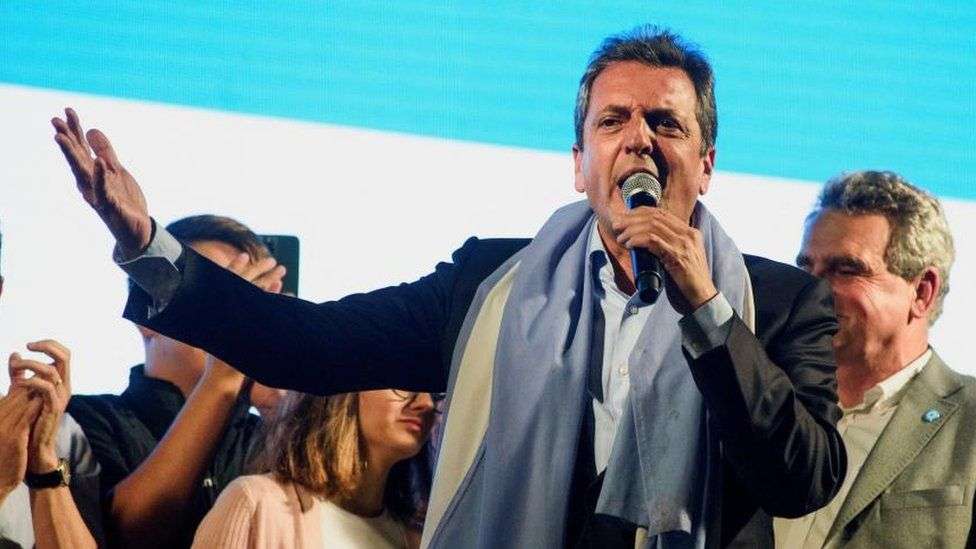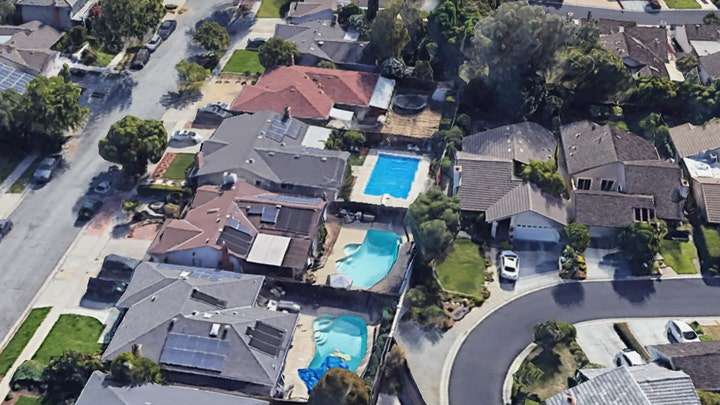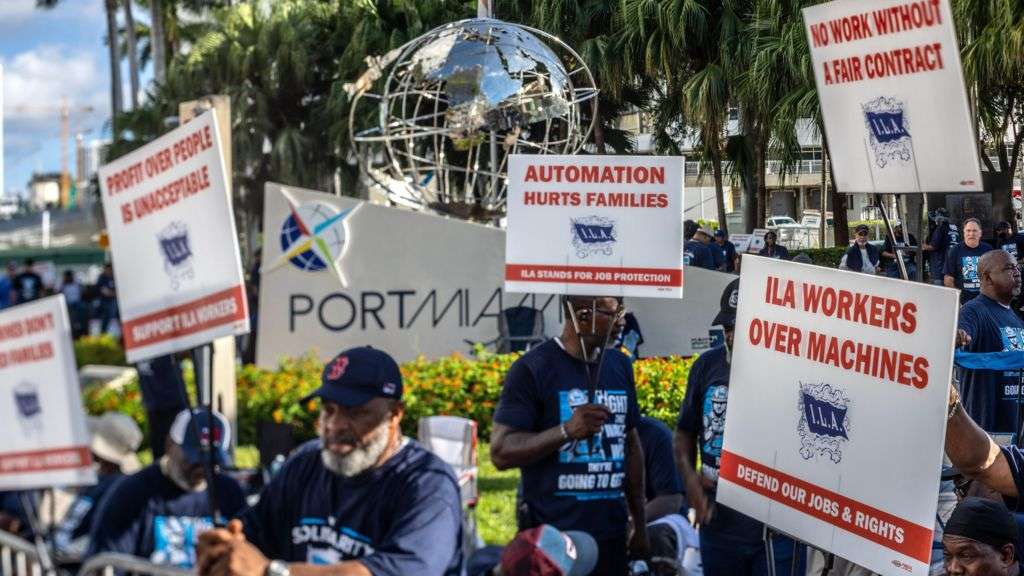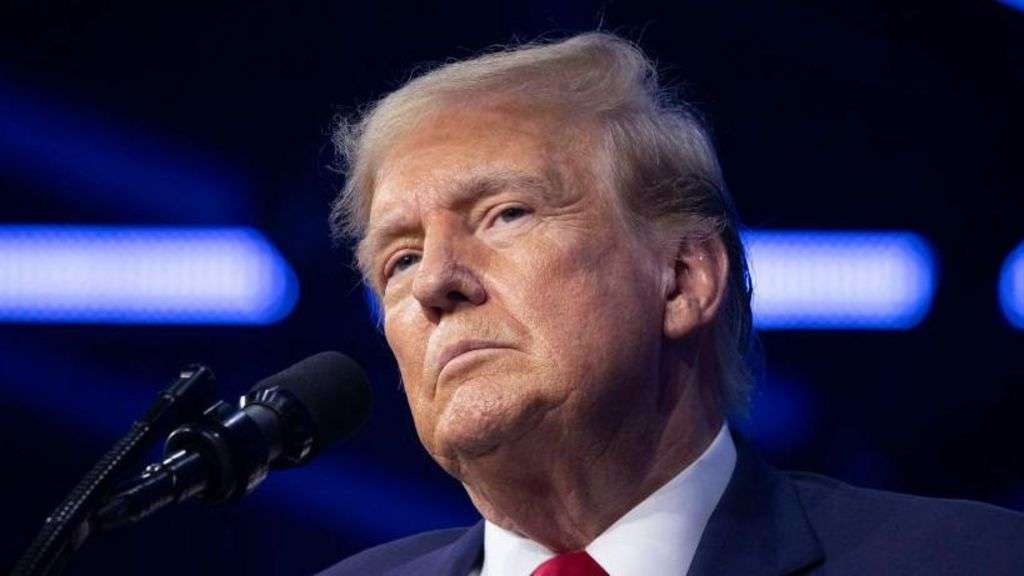Argentina's economy minister Sergio Massa has defied expectations by winning more than 36% of the vote in Sunday's presidential election, putting him on course for a run-off contest with far-right candidate Javier Milei.
Mr Massa's lead was a surprise as many had believed voters would punish him for presiding over a financial crisis.
Inflation in Argentina is nearing 140%.
With almost all ballots counted, no candidate had received the necessary 45% of votes needed to win outright.
There will therefore be a second round on 19 November in which voters will have to choose between Mr Massa, from the left-wing Peronist movement, and Mr Milei, a far-right libertarian.
Mr Milei, who had come first in the primaries in August, was relegated to second place with 30% of the votes.
Patricia Bullrich, a conservative former security minister, came third with 23.8%.
Following the result, Ms Bullrich turned on the first-placed Sergio Massa saying that "I will not congratulate someone who has been part of the worst government in Argentina's history".
The two other candidates in the election, Juan Schiaretti and Myriam Bregman, were left far behind with 6.8% and 2.7% respectively.
Some of Mr Massa's supporters took to the streets of Buenos Aires to celebrate following his unexpected win.
"What Massa showed was that he was the only candidate that has a serious project for the country," Luis Esquivel told the OceanNewsUK.
"He led a great campaign and the results show that," explained 27-year-old Juliana Agrofoglio. She added that voters had come together to "confront the fear" she said Mr Milei had inspired.
Mr Milei's proposals, such as scrapping the central bank and replacing the Argentine peso with the US dollar, appealed to voters looking for a radical approach to reverse Argentina's economic slump.
He has also promised to slash ministries and cut government bureaucracy, loosen gun laws and restrict access to abortion.
Mr Milei told his supporters that they had witnessed "the most important election in the last 100 years", adding that Sunday's vote was "historic" because "Argentines voted for a change".
Benjamin Gedan, director of the Argentina Project at the Washington-based Wilson Center think tank, said that while many Argentines were keen on radical change, "a lot of Argentines have a lot to lose from the dismantling of the social welfare state" which Mr Milei proposes.
"If Milei is at rallies wielding a chainsaw, well, at the other end of that chainsaw is people's quality of life," Mr Gedan told AFP news agency.
Mr Massa meanwhile focused much of his campaign on defending the current government's credentials.
"Our country is in a complicated situation (...) nevertheless you believed we were the best tool to build a new step in Argentina's history," he told his supporters in Buenos Aires.
The 51-year-old insisted that austerity measures passed by his government were the result of the IMF debt run up by the previous centre-right administration.
With two such polar opposites running against each other, divisions are likely to deepen in the four weeks to the run-off, at what is already a very difficult time for Argentina's economy.
Whoever wins the run-off will have a huge job on their hands: to win over a country fed up with politics, which is filled with people desperate for their lives to improve.








